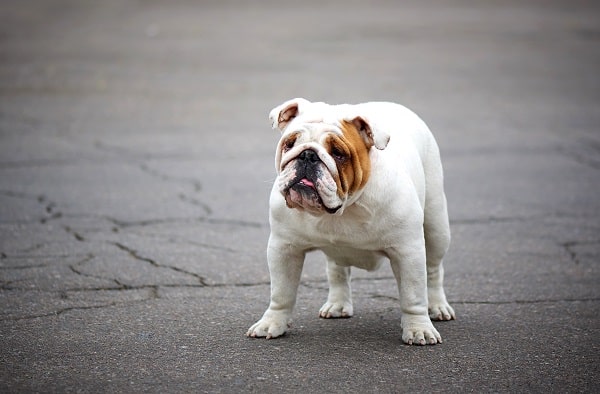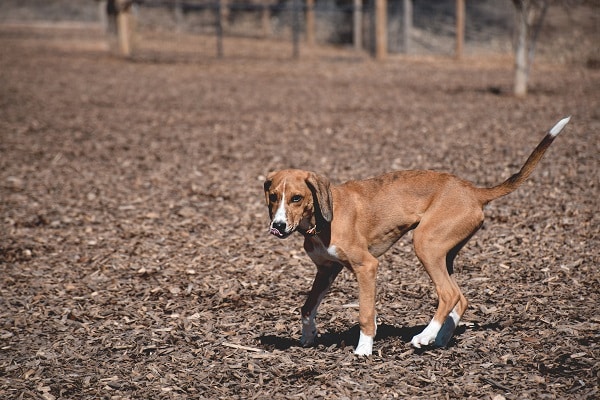In many ways, your dogs are like your children. You feed them, care for them, and provide them with a safe home. You worry about their health and well-being and want nothing more than to see them happy and thriving. It’s no wonder, then, that you often find yourself feeling deeply attached to your canine companions. Your dogs are an essential part of your lives for many of you, and you care for them deeply. From the moment you first meet them, they become a cherished member of your family, and you would do anything to keep them safe and healthy. That’s why it’s essential to know why your dog might run away so you can take steps to prevent it from happening.
Mating Instinct

While a dog’s instinct to mate is a natural and important part of its life cycle, it can also be frustrating for pet owners when their dog runs away to find a mate. Female dogs often go into heat twice a year, during which their hormones surge, and they become attracted to male dogs. If a female dog is not spayed, she can produce litters of puppies.
On the other hand, male dogs can become sexually mature as early as six months of age. While Doggy Daycare and other activities can help keep your dog occupied and content, having them spayed or neutered is the best way to prevent them from running away. If they are not neutered, they may roam searching for a mate. This simple procedure will help curb their mating instinct and make them more content to stay home with you.
Moving To A New Home

Dogs are creatures of habit. They like routines, and they want to know what to expect. So, it’s no surprise that moving to a new home can be a stressful experience for them. Dogs can sense when something changes, and the upheavals can be overwhelming. As a result, some dogs might try to run away from home. If you’re moving to a new house, there are a few things you can do to help your dog adjust and prevent them from running away.
With a little patience and understanding, you can help your dog adjust to their new home and prevent them from running away:
- Give them plenty of time to explore their new surroundings. Let them sniff around and get comfortable with the new smells and sounds.
- Make sure their routine stays the same as much as possible. Keep mealtimes and walks at the same time each day.
- If your dog does happen to run away, don’t punish them when they return, which will only make them more stressed and more likely to run away again.
Fear

Fear is one of the leading reasons that dogs might run away. Dogs might be afraid of being alone, loud noises, or being left in a strange place. They might also be afraid of something they’ve seen or heard about, such as a car or another animal. If a dog is afraid, it might try to hide or escape. The best way to prevent fear in dogs is by socializing them early on, which means positively exposing them to different people, places, and things so that they learn that there’s nothing to be afraid of. It’s also important to never force a dog to do something it’s scared of, as this will only worsen the problem. If you think your dog is afraid of something, it’s best to talk to a veterinarian or professional dog trainer for help.
Boredom

Every dog owner knows the dreaded feeling of coming home to an empty house – their furry friend has run away. While there can be many reasons why a dog might run away, one of the most common is boredom. When left alone for long periods, dogs can become restless and destructive, eventually leading them to escape in search of adventure.
Luckily, owners can do a few simple things to prevent their dogs from getting bored. Providing toys and bones to chew on, scheduling regular walks or play sessions, and investing in dog-proofing products can help to keep dogs entertained and safe at home. By taking a few simple precautions, owners can help to ensure that their dogs never get bored enough to run away.
Separation Anxiety

Dogs are social animals that thrive on companionship. When they’re left alone, they can experience something called separation anxiety. A change in routine, such as a new baby in the home or a move to a new house, often causes separation anxiety. Symptoms of separation anxiety include pacing, whining, barking, chewing, and digging.
It can also be triggered by something as simple as a long car ride or a trip to the groomer. The good news is that there are things you can do to help prevent separation anxiety. Ensuring your dog has plenty of exercise will help burn off excess energy and reduce stress. Providing chew toys and food puzzles will give your dog something to do when you’re away. Establishing a consistent routine will also help reduce your dog’s anxiety. Taking some simple steps can help your dog feel more relaxed and secure when you’re not around.
Hunting Instinct

Every year, thousands of dogs go missing. While there are many reasons why a dog might run away, one of the most common is the hunting instinct. Dogs are descendants of wolves, meaning they have a natural propensity for chasing after prey. When a dog sees a squirrel or a rabbit, its first instinct is often to give chase.
Unfortunately, this can lead them to stray from their home territory in pursuit of their quarry. If you’re worried about your dog running away, there are several things you can do to help prevent it. First, ensure your yard is fully fenced, and your dog is always supervised when they’re outside. You can also provide plenty of toys and activities to stimulate them mentally and physically. Taking these precautions can help ensure that your dog stays safe and sound at home.
Weather And Catastrophic Events

As any pet owner knows, there is always the possibility that a dog will run away. There are many reasons why dogs might run away, but one of the most common is weather-related events. While many dogs are content to stay close to home, others may be tempted to explore the wide world whenever the opportunity arises.
Catastrophic events like hurricanes and tornadoes can cause widespread panic, and many dogs will instinctively flee when they sense danger. In addition, extreme heat or cold can also prompt a dog to run away in search of better conditions. Fortunately, there are a few things that pet owners can do to help prevent their dogs from running away. Keeping them confined to a securely fenced area or fitted with a GPS tracking collar can help ensure that they stay safe and sound during bad weather.
Conclusion
There are many reasons why dogs might run away, including boredom, separation anxiety, the hunting instinct, and weather-related events. By taking steps to keep your dog entertained and safe at home, you can help reduce the risk that they will run away. Ultimately, the best way to prevent your dog from running away is to ensure they are well cared for, happy, and comfortable in its environment.